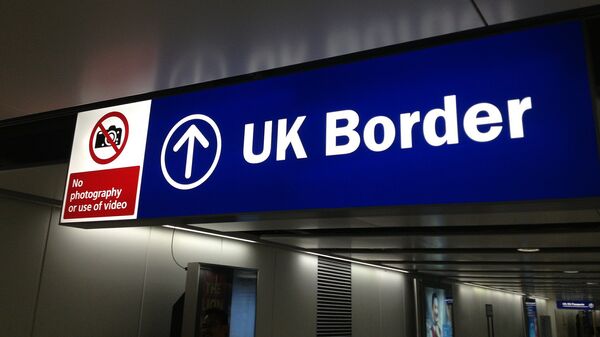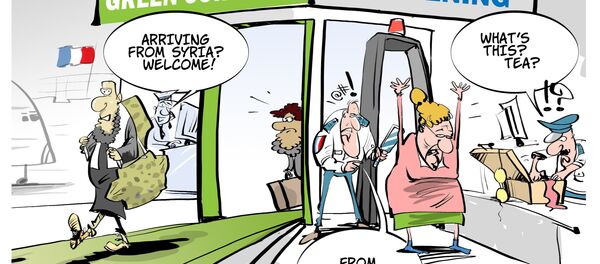The European Commission has proposed the implementation of a compulsory system of registration for visitors to the EU from countries which are not part of the Schengen Area or single market, but who do not need a visa. After Brexit, this would include the UK.
The system, called EU Travel Information and Authorization System (ETIAS), is based on the US Electronic System for Travel Authorization (ESTA), and would require travelers to pay a fee to register their visit to the EU online before their arrival at the border.
According to sources in the EU Commission, the ETIAS tariff could be as high as 50 euros, which would contribute 2 billion euros ($2.2 billion) to Europe's budget annually by 2020.
ESTA charges visitors to the US $14, and Rob McNeil, Head of Media and Communications at the University of Oxford's Migration Observatory, told Radio Sputnik that paying that kind of fee online would not present a big problem for travelers.
"If however there is a more radical situation where British people who wish to travel to continental Europe literally have to go and queue up at a consulate in order to get a visa, that would have a major effect on tourism," McNeil said.
"What kind of economic and social trade-offs people are willing to accept in exchange for having greater control over migration is one of the fundamental challenges that governments in the UK have had to struggle with for some time."
The UK government has allowed net migration to exceed its target of 100,000 for the past five or six years, and net migration currently stands at around 330,000 per year.
"There are economic and social reasons why we allow migration into the UK, for example to fill gaps in the labor market, because we have a thriving international study center, and because we tend not to want to restrict the rights of people to marry who they please and bring those people into the country. All kinds of different factors are at play here."
"In theory, increased restriction on EU migrants into the UK could help to restrict migration substantially and bring numbers down. Whether or not it will, because people will be willing to actually accept the consequences of doing that, is another question altogether."





